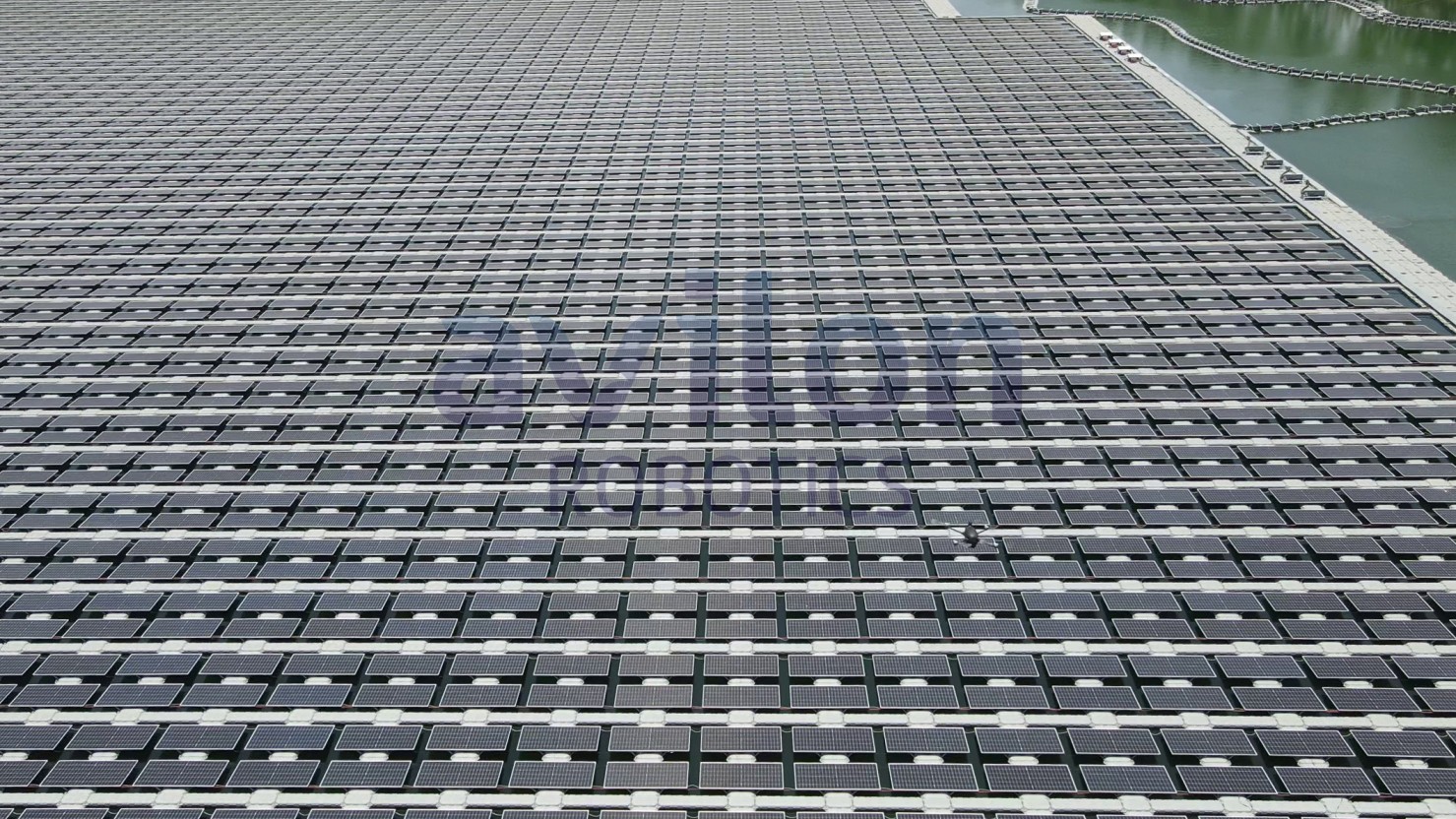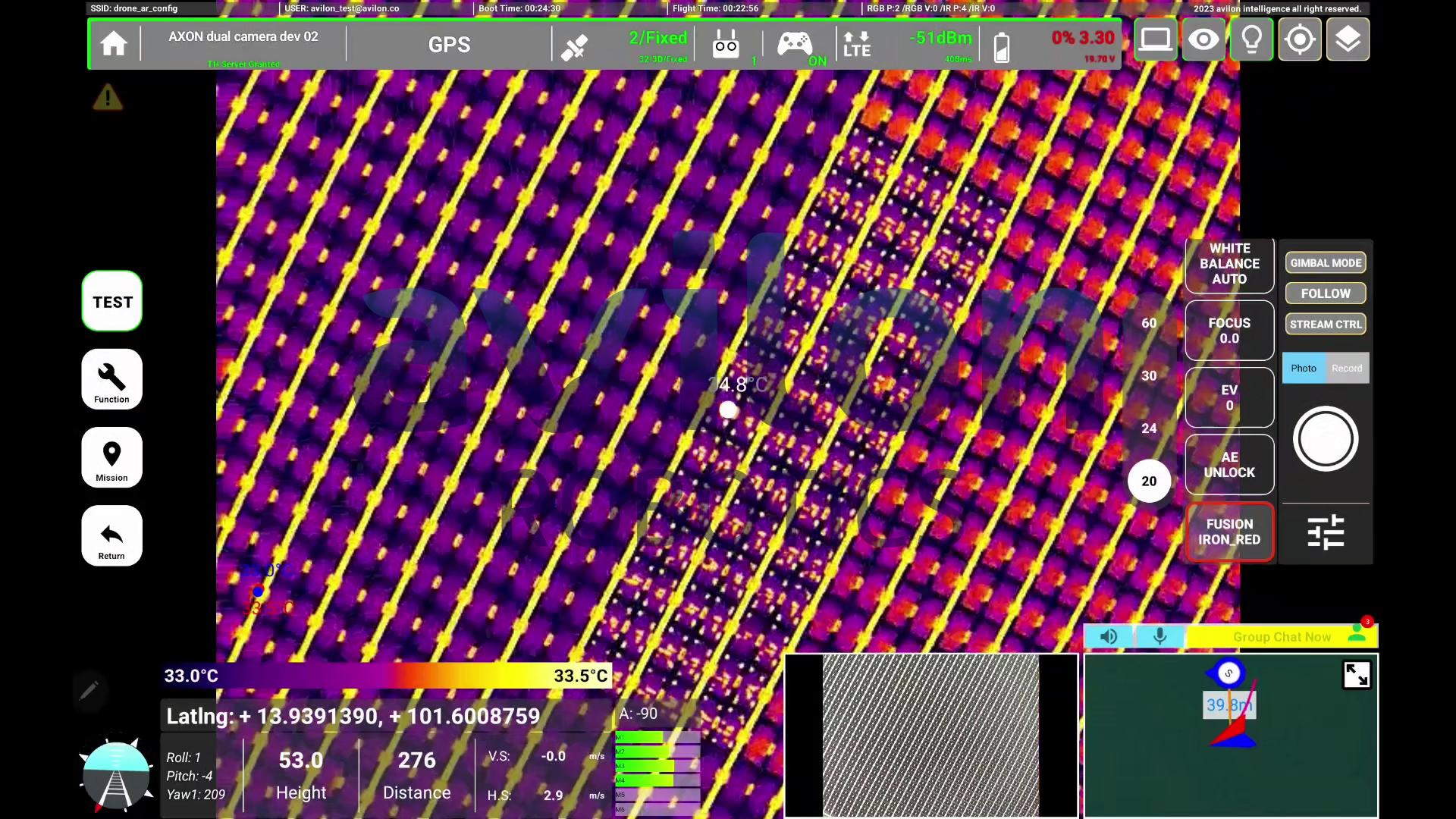Utilizing drones with AI and thermal cameras for solar panel inspections. The automated reports reports on damages, causes, and images via our Solar Inspection Platform.
Solar panel inspections involve various methods, like manual checks using thermal imaging cameras. However, inspecting numerous panels by hand-carrying these devices can be tedious. Hiring many individuals to carry expensive thermal detectors for large-scale assessments may not be cost-effective. Typically, solar cells are installed in hard-to-reach places, such as tall buildings or floating solar farms

Currently, drones equipped with thermal cameras have become an effective tool for inspecting solar panels. With the flying capabilities of drones, inspecting large solar farms or numerous solar panels is simplified and expedited. Moreover, drones integrated with Artificial Intelligence (A.I.) offer rapid analysis of solar panel inspection results
Benefits of drone inspections for solar panels:
Using drone technology combined with thermal imaging for inspecting solar panels is one of the most efficient and precise methods available today. Drones with heat detection capabilities allow for rapid imaging and assessment of solar panel conditions, resulting in cost savings for inspection and maintenance processes. This facilitates quick identification and notification of issues found on solar farm panels.
-
Detection of malfunctioning solar panels
- Identification of panels with dirt or debris accumulation
- Spotting cracked or damaged panels
- Locating panels with fissures
- Assessing panels that aren't operating at full efficiency.
-
Detection of malfunctioning solar panels
- Identification of panels with dirt or debris accumulation
- Spotting cracked or damaged panels
- Locating panels with fissures
- Assessing panels that aren't operating at full efficiency.

